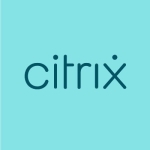What is our primary use case?
We have a few servers, and I tag them to the storage. Through that, we create VMs by provisioning some RAM, CPU, and storage. The RAM and the CPU get adjusted when we buy more servers to add to the cluster.
We are not using its latest version. We are yet to migrate to its latest version.
How has it helped my organization?
It has saved us millions of dollars by generating many VM's out of a simple server added to a server pool which is highly available.
What is most valuable?
Its ease of management and simplicity are most valuable. It is free, and you can provision an unlimited number of VMs at no cost for clients. They also provide perfect support.
What needs improvement?
The user interface of the version that we have requires improvement. They have already improved the user interface by moving away from OVMM to OVM or KVM which uses the oVirt engine and has a completely new feel for the user interface, but we are yet to migrate to that. The new UI is much better and more intuitive.
I would like it to be simple. It is serving all of our needs, and I don't think it is necessary to keep adding. We are able to provision a VM in ten minutes, and provisioning it in five minutes will not have any added benefit.
Just keep it simple.
For how long have I used the solution?
I have been using this solution for over ten years.
What do I think about the stability of the solution?
It is very stable. That's why I've used it for all my clients.
What do I think about the scalability of the solution?
It is highly scalable. It can be scaled to any amount that you want. The RAM, CPU, and storage can be easily scaled.
It is suitable for big and small organizations. We have deployed it for financial institutions and banks with lots of users and VMs. They use it for all kinds of things.
How are customer service and technical support?
We have their 24/7 support. The hardware that we're using is Oracle hardware, and it is mandatory that you have the HW support. We also have field delivery engineers for the hardware support and premium support for Oracle Linux and virtualization.
Their support is perfect and wonderful. They respond immediately, but it also depends on the severity.
Which solution did I use previously and why did I switch?
We used a different solution which had license limitations but Oracle VM is free and unlimited VMs can be provisioned at any time if there is adequate compute power.
How was the initial setup?
It is very simple and straightforward. You just need to connect a bunch of servers to the storage, and you're done. For installation, you just download the parts of the software and install them on the server. Once installed, you discover them through the management interface, and that's about it.
The software installation takes about 20 minutes, but it also depends on how many services you are attaching to the storage. Its maintenance involves just upgrades.
What about the implementation team?
We are Oracle Field Engineers and have lots of Specialization around the product.
What's my experience with pricing, setup cost, and licensing?
All other vendors are selling their licenses to use the VM, but Oracle isn't doing that, which is its biggest advantage.
It is free. All you have to do is get the hardware. You can create an unlimited number of VMs for free. With VMware, you have to purchase licenses for the number of VMs that you want to create. You only pay for their premium support, and even that is optional. I am now learning this product, and we can even do without the support.
Which other solutions did I evaluate?
We considered the following below:
1. The physical memory supported by Oracle VM is higher
2. No of vCPU supported on guest(VM) is higher
3. Product is free and this is the best part
What other advice do I have?
I would recommend this solution to others. I have recommended this to many different clients. It is for free, which is its biggest advantage. We are also Oracle partners, so we tend to go for Oracle.
I would rate Oracle VM a ten out of ten.
Which deployment model are you using for this solution?
On-premises
Disclosure: My company has a business relationship with this vendor other than being a customer: Partner















